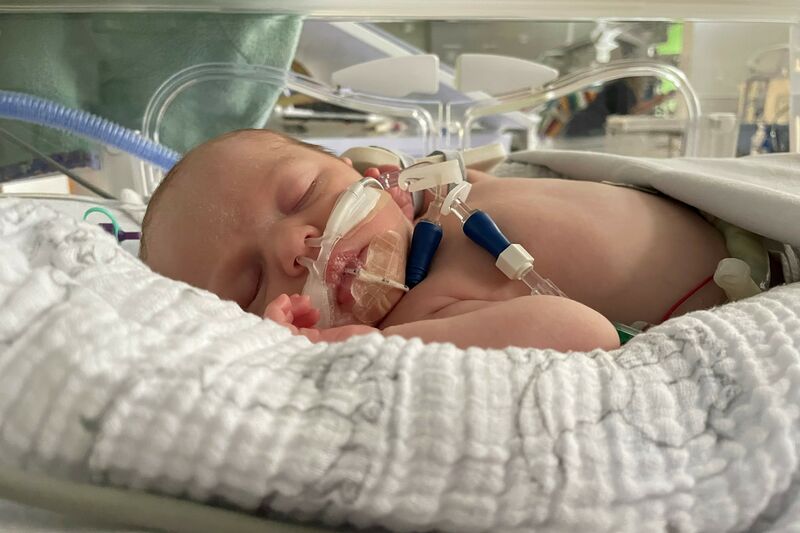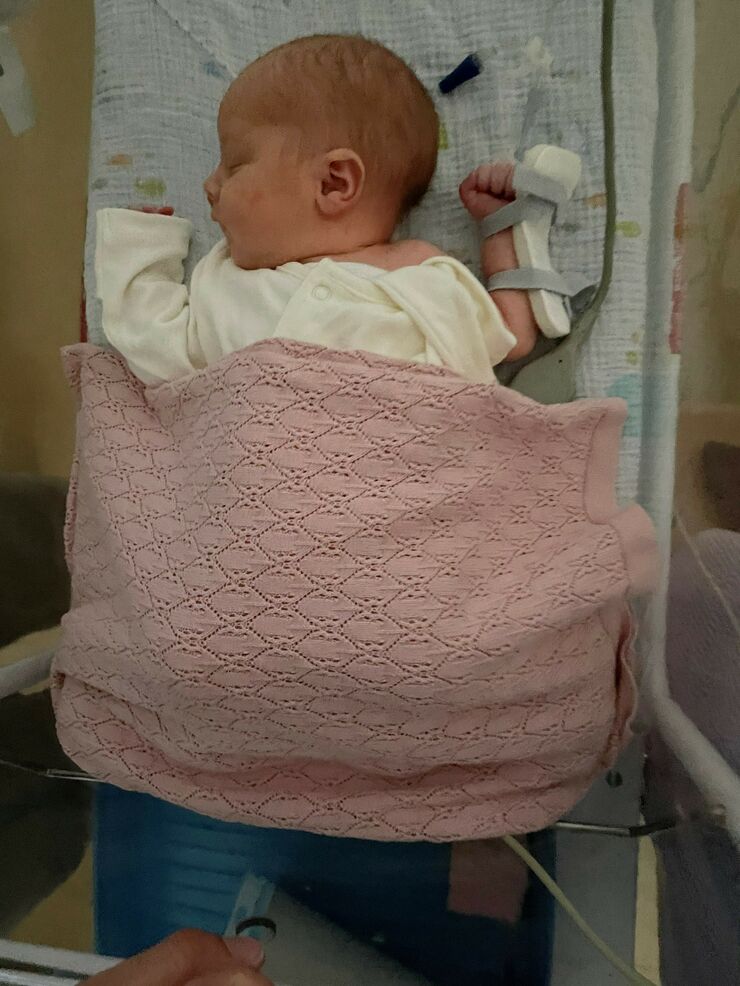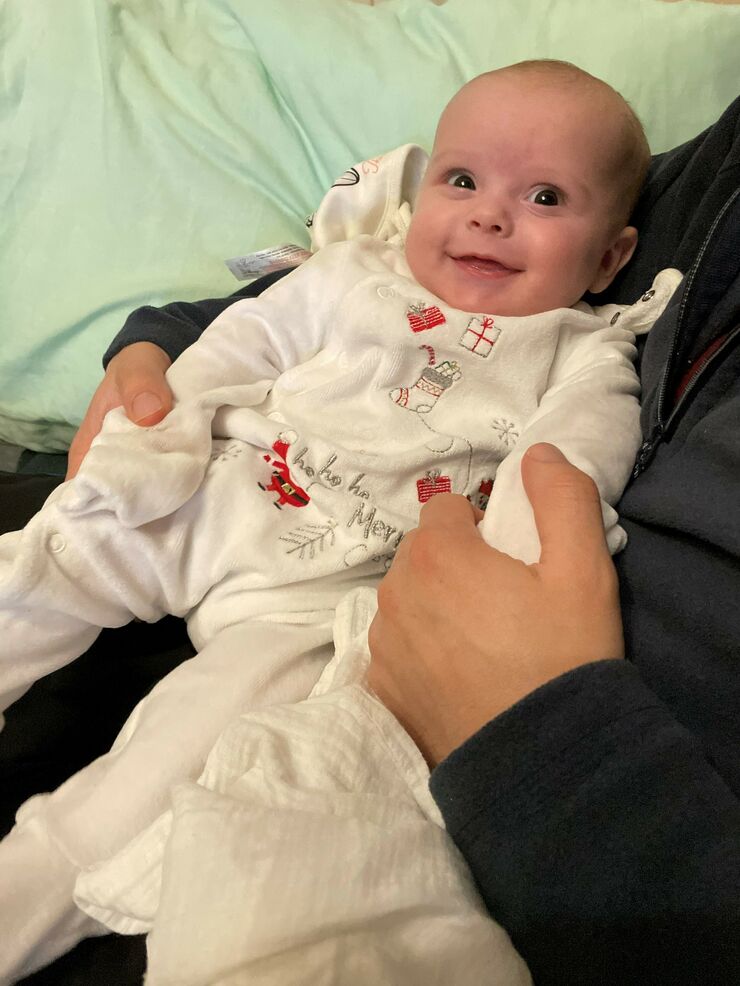My pregnancy with my second child went smoothly until 35 weeks when something didn’t feel right.
I had growth scans as my baby’s movements slowed down a lot. I was going in every day for monitoring but they couldn't find anything wrong.
Then at about 37 and a half weeks, I was due to go in on the Tuesday for a growth scan, but on the Saturday before I became so poorly that my partner took me straight to the hospital. I was admitted so I could be monitored every six hours.
The medical team were gradually getting more and more unhappy with the results so they kept me in for two weeks until the growth scan. My baby hadn’t grown - she'd gained a couple of grams when she should have gained a pound over those two weeks. So told me I was going up to be induced.
I'd already been in hospital for three days, barely slept, and now I had to be induced to give birth. I thought, how am I going to do this?
With my first daughter, I was induced and it worked within the hour. This time, I knew it was going to take longer because she wasn't quite 38 weeks and not ready to come out.
They induced me at about 11 am and by 7 pm I was having regular enough contractions, but they sent me down to delivery because they weren't happy with my CTG monitoring again.
After going on like that for a couple of hours, a consultant came over and spoke to me and said, “I think very likely it's going to be a caesarean.” At that point, I just accepted it even though it wasn’t what I originally wanted.
After five and a half hours, I was only one centimetre dilated, attached to a CTG, and they still weren't happy with things like her variability. In the end, I said, “Why don't we just skip a step? Let's just go for a caesarean.” I was mentally prepared for it by that point.
At bang on 38 weeks, Abbie was born.
The caesarean itself was quite nice. I had a really nice anaesthetist who talked me through it, but in the back of my mind, I was thinking, what's going to happen when she gets out? What's she going to be like? My other half wondered if she was going to be brain-dead - we didn't know what was wrong at this point.
When she was born, they took her over to the table, and I was chatting away - I could hear her, she was breathing, she was not blue, she was crying, but they weren't bringing her over. They weren't happy with her colour and she was born very small; she was five pounds and four ounces.
I was told that they were just giving her oxygen and I started to get worried, because they should have passed her over to me by now, but the nurse said that she was still not breathing as well as she should have been on her own.
I then heard the words that nobody ever wants to hear, “We're going to have to take her out to neonatal,” and my heart sank.


